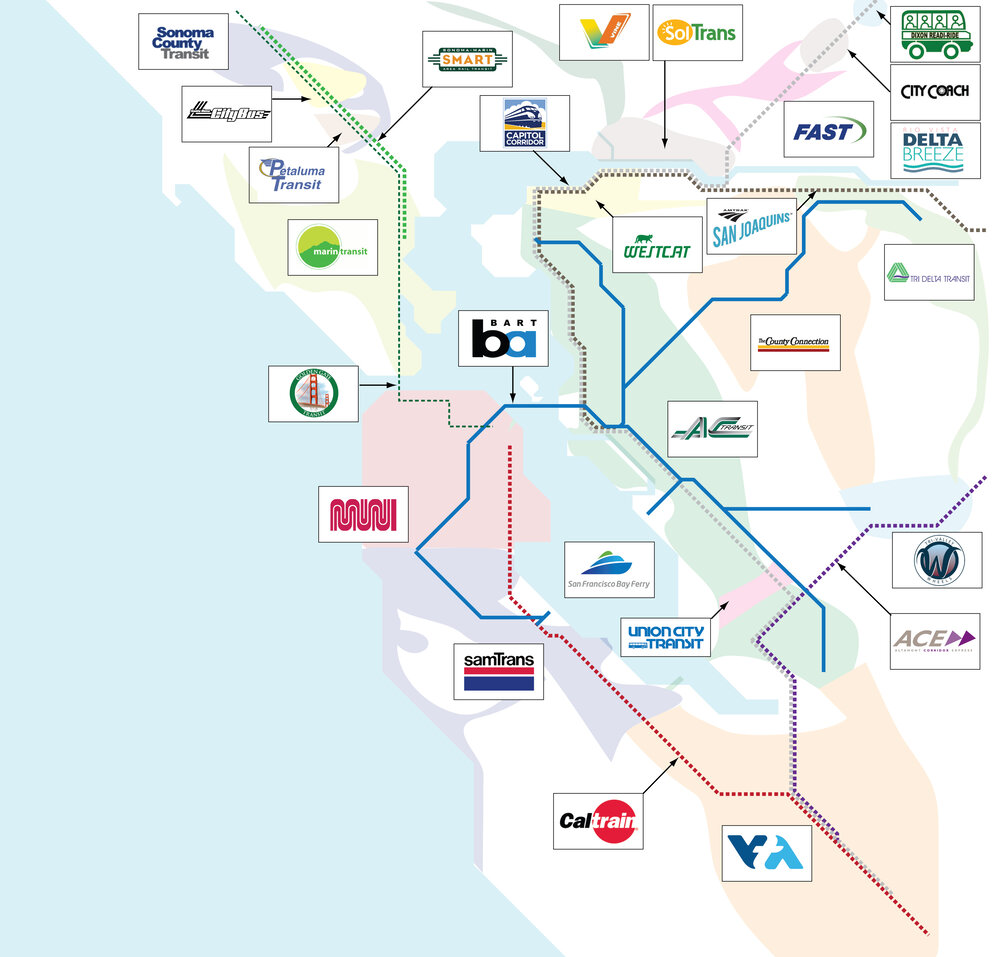The University of California at Berkeley and the United Auto Workers, which represents its employees, have come to an agreement that will allow the BayPass transit pilot to continue at the university.
"We are working with UAW on a final agreement," wrote UC Berkeley's Janet E. Gilmore in an email to Streetsblog sent Monday. "To be clear, we are not pulling out of the BayPass program."
As Streetsblog reported this past Friday, July 7, 12,000 graduate student-employees at UC Berkeley, who normally receive a transit card good on AC Transit as part of their benefits, were also selected to participate in the BayPass study. BayPass is a two-year pilot program to test the financial impact of integrating fares and providing fare media that will work seamlessly on essentially all of the Bay Area's bus, ferry, and train systems. But due to a conflict between the UAW and management, the student-employees at Berkeley who were randomly selected for the study were set to lose free access to BART, Muni, and other transit operators this week.
More details on the UAW-UC compromise from an email sent Monday morning to Streetsblog by John Goodwin, a spokesperson for the Metropolitan Transportation Commission, which funds the BayPass program:
MTC was informed the UC Berkeley and UAW 2865 reached a settlement in principle regarding the Clipper BayPass pilot program. UC Berkeley intends to extend its participation in the pilot until August 13 or until a final settlement with UAW is reached, whichever comes first. Once the final settlement is reached, UC Berkeley intends to continue its participation in the Clipper BayPass program as originally agreed upon and throughout the duration of the pilot.
The program, which provides universal transit passes to a subset of students at several Bay Area universities and residents of low-incoming housing, was showing great promise as a case study for a future universal Bay Area fare card, similar to those issued in London, Zurich, and most cities in the world. But then the labor disagreement between the union at UC Berkeley and its management threatened to partially derail the pilot, by canceling passes issued to 12,000 members of the UC Berkeley bargaining unit. This would have reduced the study size from 50,000 to 38,000 participants, diluting the data from the pilot.
"At Seamless we are thrilled to see continued and expanded participation in the BayPass pilot, which is demonstrating the benefits of affordable, integrated fares to transit riders and transit ridership," wrote Adina Levin of Seamless Bay Area, the group that originally advocated for the study. "We are eager to see the next phases of the pilot move forward, so the region can use the data from the pilots to develop a program to roll out broadly."
"We look forward to the pilot leading to an expansion of the program so everyone can eventually have access to a great product," added Seamless's Ian Griffiths.






